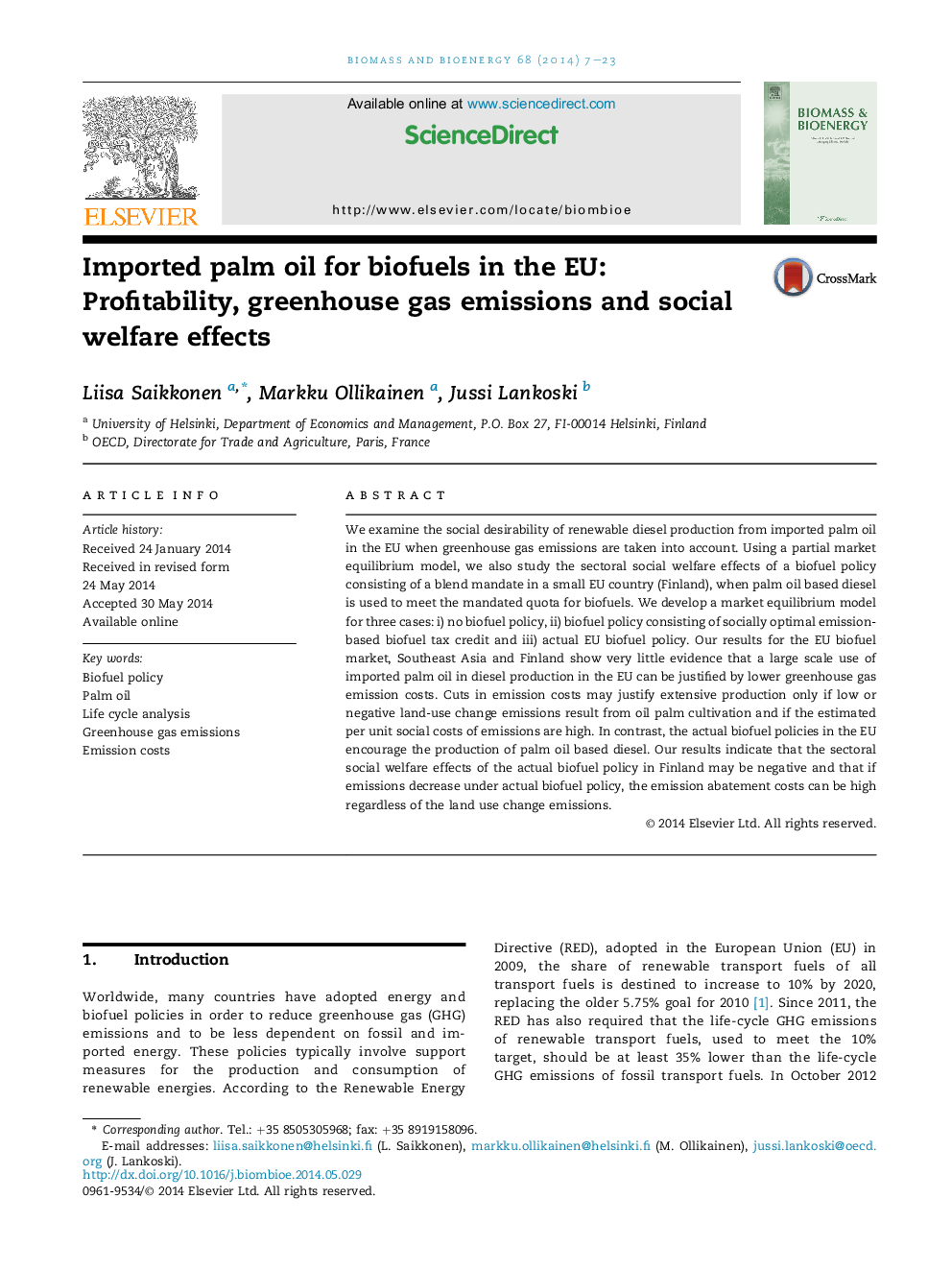| Article ID | Journal | Published Year | Pages | File Type |
|---|---|---|---|---|
| 7064391 | Biomass and Bioenergy | 2014 | 17 Pages |
Abstract
We examine the social desirability of renewable diesel production from imported palm oil in the EU when greenhouse gas emissions are taken into account. Using a partial market equilibrium model, we also study the sectoral social welfare effects of a biofuel policy consisting of a blend mandate in a small EU country (Finland), when palm oil based diesel is used to meet the mandated quota for biofuels. We develop a market equilibrium model for three cases: i) no biofuel policy, ii) biofuel policy consisting of socially optimal emission-based biofuel tax credit and iii) actual EU biofuel policy. Our results for the EU biofuel market, Southeast Asia and Finland show very little evidence that a large scale use of imported palm oil in diesel production in the EU can be justified by lower greenhouse gas emission costs. Cuts in emission costs may justify extensive production only if low or negative land-use change emissions result from oil palm cultivation and if the estimated per unit social costs of emissions are high. In contrast, the actual biofuel policies in the EU encourage the production of palm oil based diesel. Our results indicate that the sectoral social welfare effects of the actual biofuel policy in Finland may be negative and that if emissions decrease under actual biofuel policy, the emission abatement costs can be high regardless of the land use change emissions.
Related Topics
Physical Sciences and Engineering
Chemical Engineering
Process Chemistry and Technology
Authors
Liisa Saikkonen, Markku Ollikainen, Jussi Lankoski,
